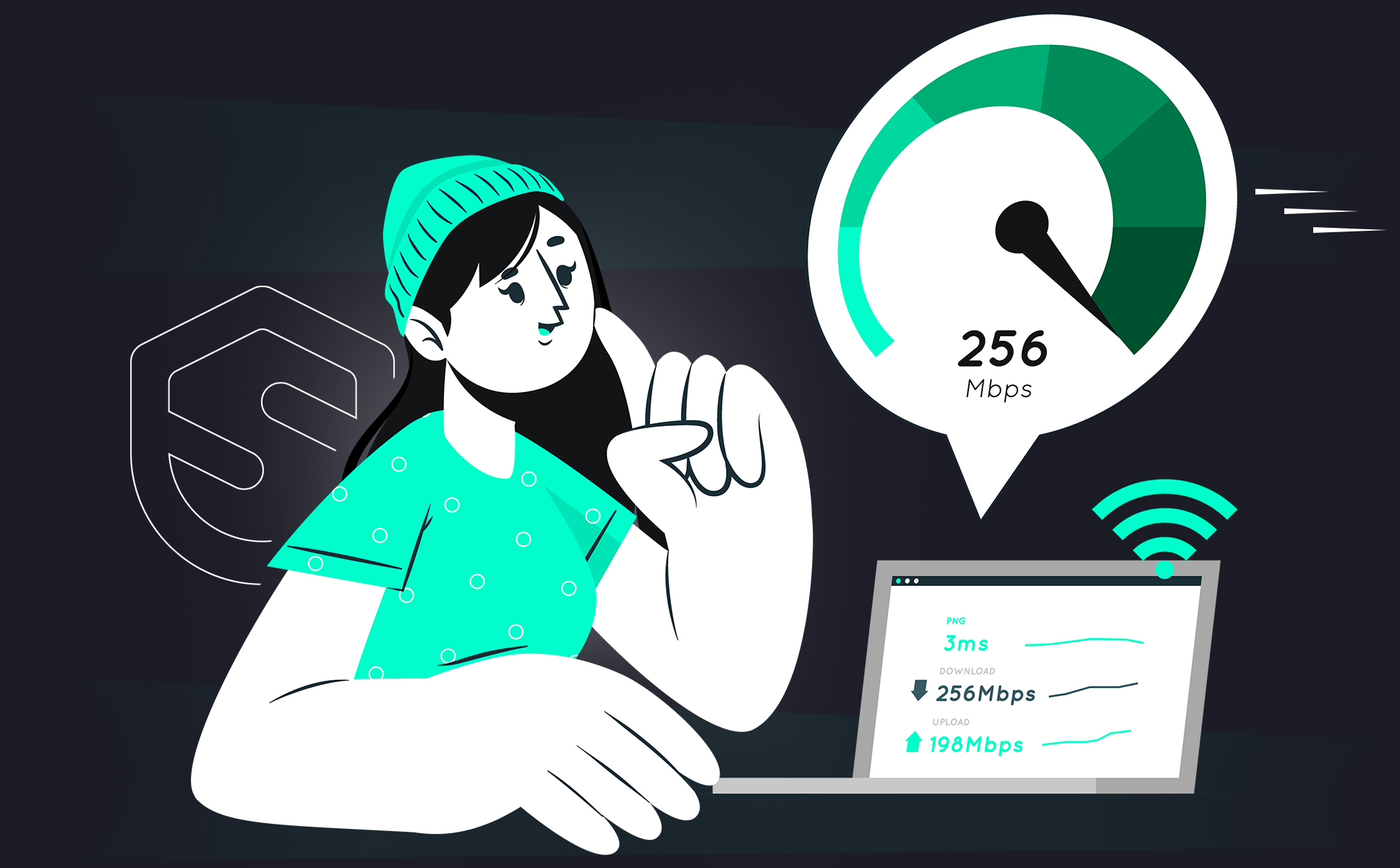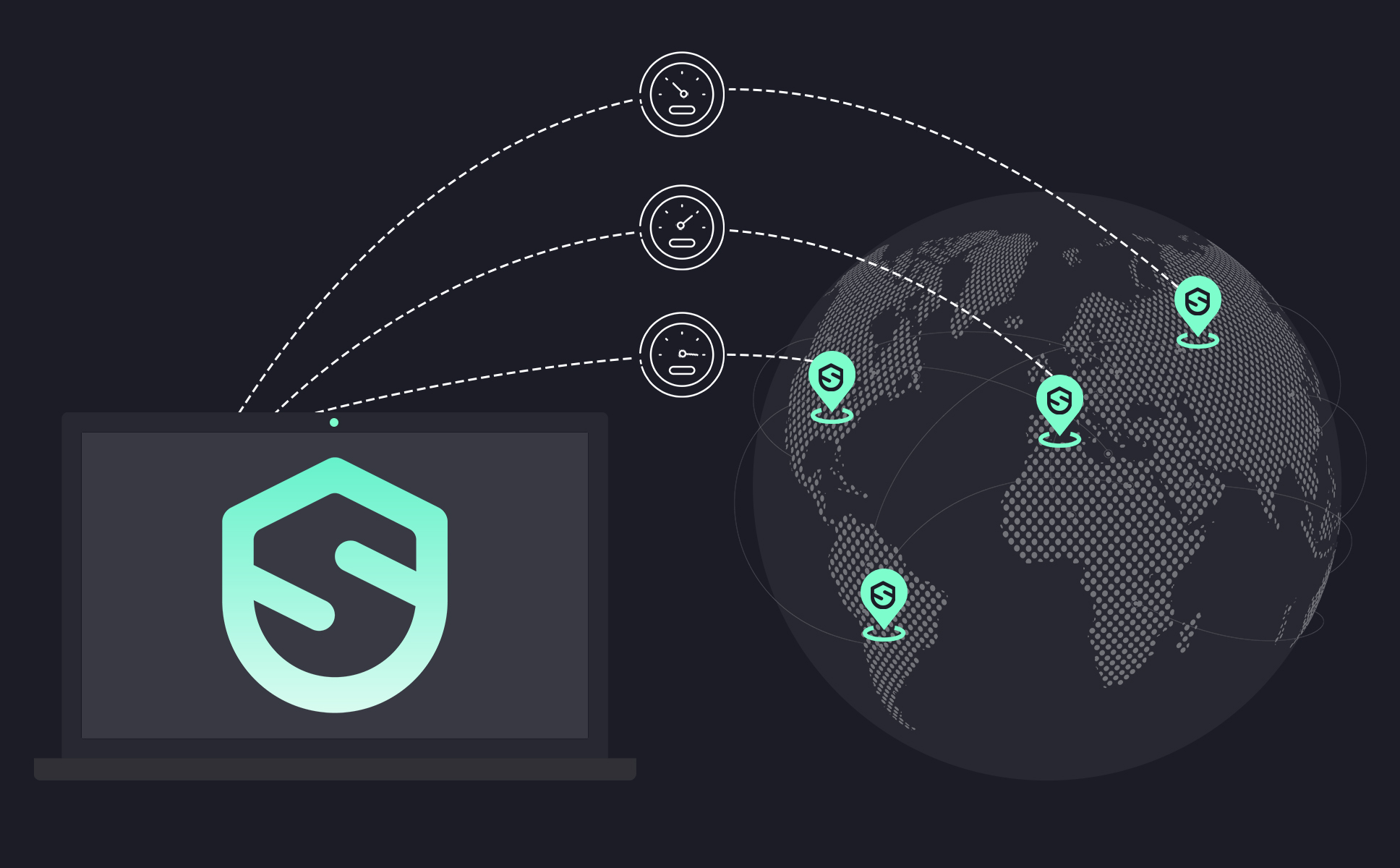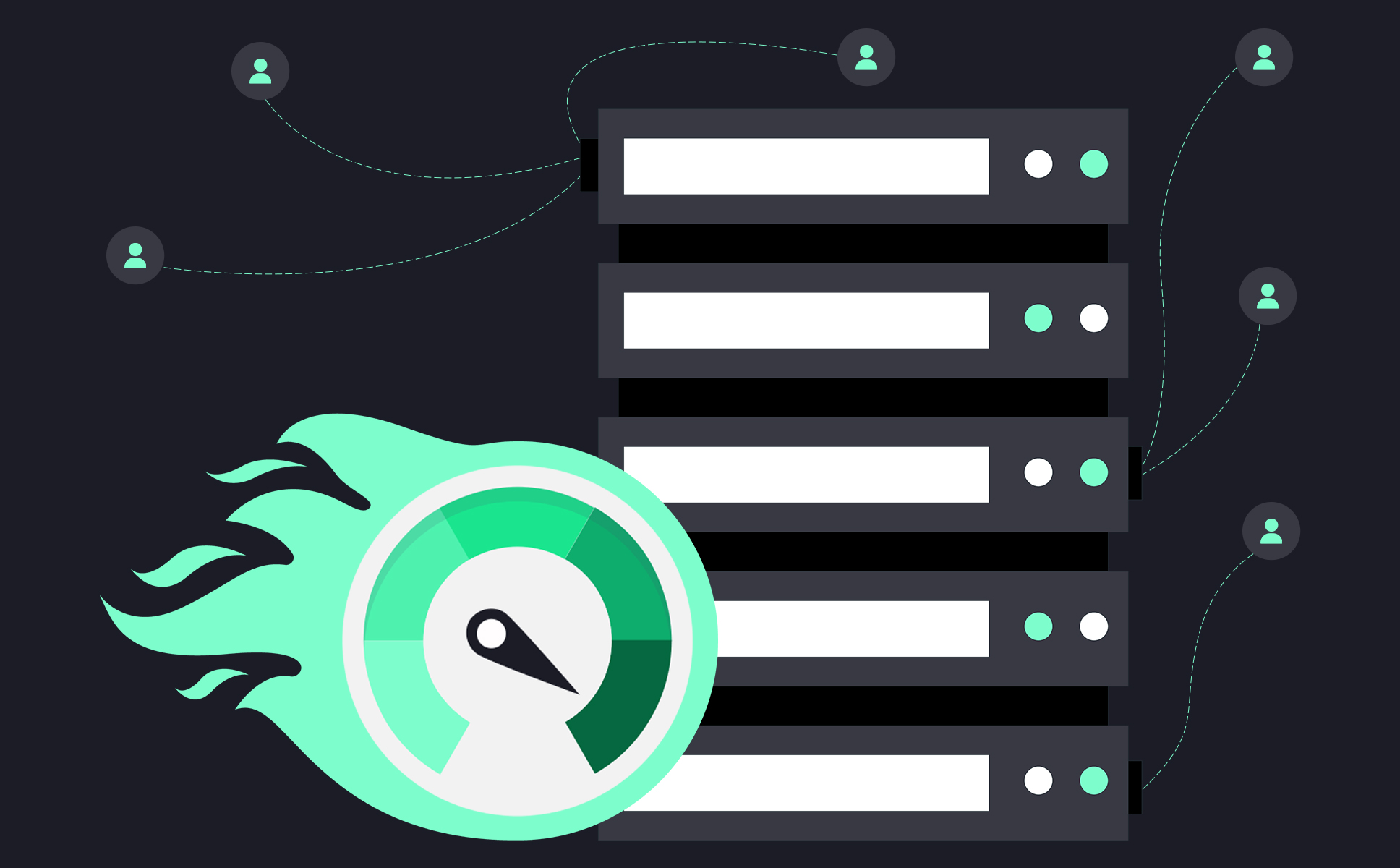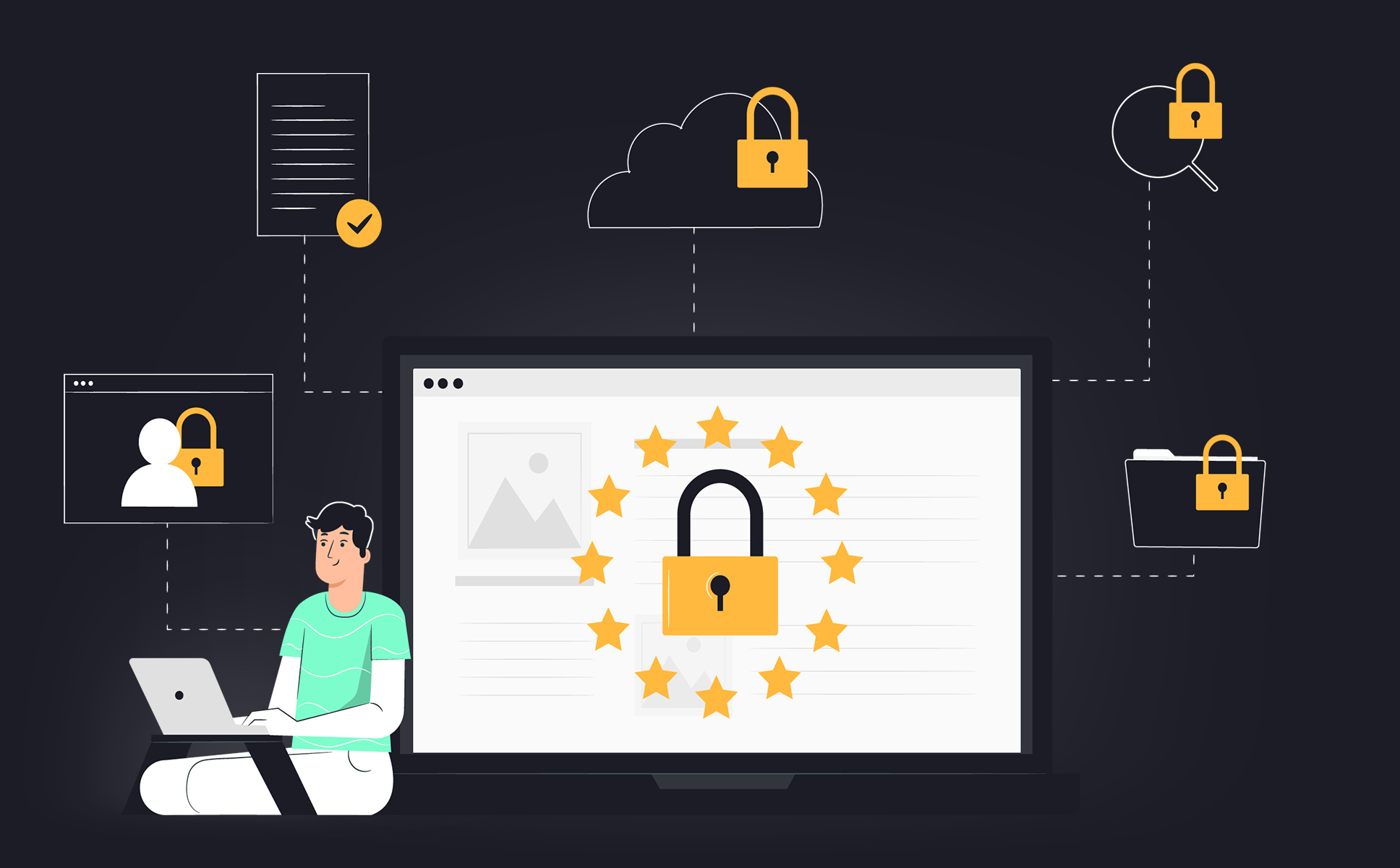Does A VPN Slow Down Internet Speed? Accelerate Your VPN Connection With These 7 Tips
A Virtual Private Network (VPN) can stop others from eavesdropping on or tampering with your Internet traffic. It does this by hiding your traffic behind an encrypted tunnel between you and your VPN provider. A VPN allows you to mask your IP address by making it look as if your traffic is entering the Internet from the computer of your VPN provider rather than from your own, which disrupts tracking and helps you bypass geo-blocks.
Despite its benefits, some people hesitate to use the technology because they believe VPNs negatively impact the performance of their Internet connection.
So, can using a VPN slow down your connection?

Well, the answer is yes. All of a VPN's advantages come at the trade-off of a slowdown in connection speed. When using a VPN, your data is encrypted before being sent over the internet through a distant server. The time required for data encryption and decryption as well as the distance that data must travel to and from the VPN server is the main cause of the slowdown. However, it just scratches the surface.
What truly important is whether or not this sluggishness is noticeable. A reliable VPN may somewhat slow down your Internet connection, but only to a trivial degree. Users who use cutting-edge VPN services typically perceive only a marginal decrease in performance, which they consider to be well worth the trade-off. There are a number of potential causes for latency:
1. Distance to a server

The location of the server you are connecting to has the greatest impact on your internet speed. Faraway servers cause your data to travel long distances. Unless you need to connect to a server in a specific location, try connecting to a server that isn’t too far away from you if you want to make sure your internet runs as fast as possible while using a VPN. Use this rule of thumb: the greater the distance between your location and the server you’re connecting to, the higher the chance your internet will run slow.
2. Server load

Even when using a server that is geographically close to you, the speed of your internet connection could significantly drop if there is a big number of people connected to the same server at the same time. In the vain belief that their "free" price tag can attract users, free VPNs always jam too many users onto too few servers, which frequently causes server overload. Premium VPN users, like SysVPN seldom, if ever, experience slow VPN speeds, and this is because these users have access to a greater number of servers. Here, the Quick Connect button on SysVPN comes in helpful, as it will connect you to the fastest server available.
3. Quality of encryption

Encryption is the key feature of virtual private networks. It makes your online traffic inaccessible to hackers and snoopers, letting you browse in privacy. However, this is also the step that may contribute to lower upload and download speeds, since it takes to time encrypt and decrypt data.
Once again, there is a way around this. Most of the better VPN services available - including SysVPN - will offer multiple protocols and not all of them will necessarily use full encryption. So, if you want to go for speed over security you can opt for a lower level of encryption and get faster connectivity. Your IP address would still be sufficiently anonymized even at a lower level of encryption, and you’d be getting maximum connectivity speed.
So, it’s a matter of preference: The strongest type of AES is what you should be looking for in a VPN. However, there is a small tradeoff you have to make: the security and privacy supported by the strongest available encryption can produce latency and lower internet speeds. Do you prioritize maximum speed or data protection against snoopers?
4. Internet speed offered by your ISP

If your internet speed is low to begin with, a VPN won’t be the only culprit of sluggish speeds. Sometimes, internet service providers (ISPs) throttle bandwidth on purpose. Users might experience this by their Internet speed dropping for specific websites or at certain times. As a user, this usually means that you won’t be able to stream videos or download content as fast as you normally would.
In this situation, a VPN is a true lifesaver – by routing your internet traffic through a virtual private network, you can bypass any content- or user-specific speed limitations imposed by your ISP.
A VPN does not need to slow down your internet speed...
At its core, a VPN's job is to encrypt your connection and send it through a secure VPN server. Because a VPN adds extra steps between you and the Internet, it’s bound to slow down your connection somewhat. However, it never means that you need to opt for a VPN that will slow down your Internet. A premium VPN like SysVPN is so fast that you won't normally notice any increased latency; the slowdown is usually imperceptible for the user. If everything's connected and working properly, there shouldn’t be much of a difference.
7 tips: How to accelerate your Internet speed while using VPN
In most cases, you can expect your internet speed to take a small hit when using a VPN. That's because your traffic is being routed through a VPN server, creating one extra step in the data transfer process. Depending on the VPN connection speeds, however, you probably won't experience any noticeable slowdown. But by using the right tools, techniques, and settings, you can achieve the best VPN speed possible. Check out these 7 tips:
1. Double-Check Your Network Connection
If your connection was already sluggish to begin with, your VPN is not to blame. Just compare your connection speed both with and without a VPN by running a quick speed test (gắn link https://www.speedtest.net/). This can help you make up your mind if your VPN is the culprit causing the latency or whether you just need to improve your internet plan or hardware.
2. Connect to a server nearer your location
One of the most common causes of a slow VPN connection is the VPN server. There are several reasons why this could be the case, the first one being geographical distance. It boils down to this: the further the server is from you, the greater the distance your data needs to travel, and the slower the connection is.
If your chosen VPN server is significantly far from your physical location, it will take longer for data packets to be transmitted due to more networks that it has to pass through. In addition, some packets may get lost in the way and latency can be impacted by bandwidth limits in foreign boundaries. Changing your server to a location that is nearer to you can increase your loading speed rather than one that's halfway across the world. The nearby server location creates a low latency which is the time to send a request and receive a response from the server. Under such circumstances, you will experience a high internet speed.
The only time that we recommend you choose a VPN server that is far from your location is when you’re geo-spoofing to access content that is not offered for streaming or downloading where you are at.
3. Connect to a server that isn't overloaded
Sometimes speed may not improve despite you’re already using the closest server. This could be due to the high server load. Popular servers get overloaded when lots of people connect to them at once. In these cases, don’t be afraid to pick one that’s less congested (even a bit farther away) if the closest ones are too slow to get a faster connection. You may need to switch servers more than once before finding one that works best for you, so be patient, it just takes a little trial and error.
4. Change your protocol settings
VPN protocols are basically the system responsible for encrypting your data before forwarding it to an external server. The more complicated the encryption language is, the more secure it is, but the longer it takes to encrypt and decrypt. And consequently, the protocol you use impacts security levels, VPN speed, and internet speed. Although many protocols offer high-level encryption and maximum security, such strong encryption can also take a considerable chunk out of your VPN speed.
Therefore, changing your protocol settings is also an effective way to boost your internet speed. Depending on how you value security versus speed for your particular needs, you can change your protocol to a lower bit-level of encryption that provides less security but a faster connection.
SysVPN allows you to change the protocol you connect through in their settings section, so try playing around with the protocol settings to see which ones get you the fastest speeds.
Pro tip: If you prefer to use OpenVPN exclusively, toggle UDP rather than TCP to get the best speeds. While TCP is typically the more stable option, it tends to be slower than UDP because it needs to send data packets in the right order and will wait for confirmation of receipt from the recipient prior to sending the next packet. UDP isn't concerned about the order in which it sends data packets or getting any acknowledgment that they were received, so it tends to be much faster and more efficient, but less stable.
5. Restart your router/modem
Over time many devices experience “fatigue” due to running out of free memory or resources. Restarting your device may help your connection speed. This will also fix some internal system issues causing your VPN connection to slow down. So, as cliche as it sounds, try turning it off and back on again, then see how your VPN speeds improve as a result.
Your router likewise needs a restart or a power cycle to clean its cache. This will also help your router to select a less crowded channel.
Finally, if your goal is to restore your device’s peak performance, you may need to reset it to its factory settings. Just keep in mind that doing so will erase everything on the system.
6. Enable Split-Tunneling
By default, most VPN apps direct all your device traffic through the encrypted tunnel. That's simple and ensures there's no chance of any identity leaks, but it could also be an unnecessary drain on your VPN bandwidth. If you're only using a VPN to protect your most secure web browsing, for instance, why also route your streaming apps through the same connection?
Split tunneling gives more control over the applications that use the VPN tunnel. At its simplest, you could pipe your browser traffic through the VPN to shield banking and online shopping, while allowing everything else to use your regular connection. This can help optimize your VPN speeds for certain activities because all the excess traffic you don't need running through your VPN won't burden your bandwidth.
7. Close unnecessary apps running in the background
Your VPN isn’t the only application that uses the internet on your device. You might have a bunch of programs running quietly in the background, chewing up both bandwidth and resources without you even realizing it. The more activity you have on your internet connection, the slower your VPN will feel. And on a mobile connection, this unwanted activity can eat through your data plan before you’ve even realized it. Take a minute to check if anything's running in the background that you're not using and close those processes. By clearing up potential bottlenecks like this, you might notice a faster connection.



